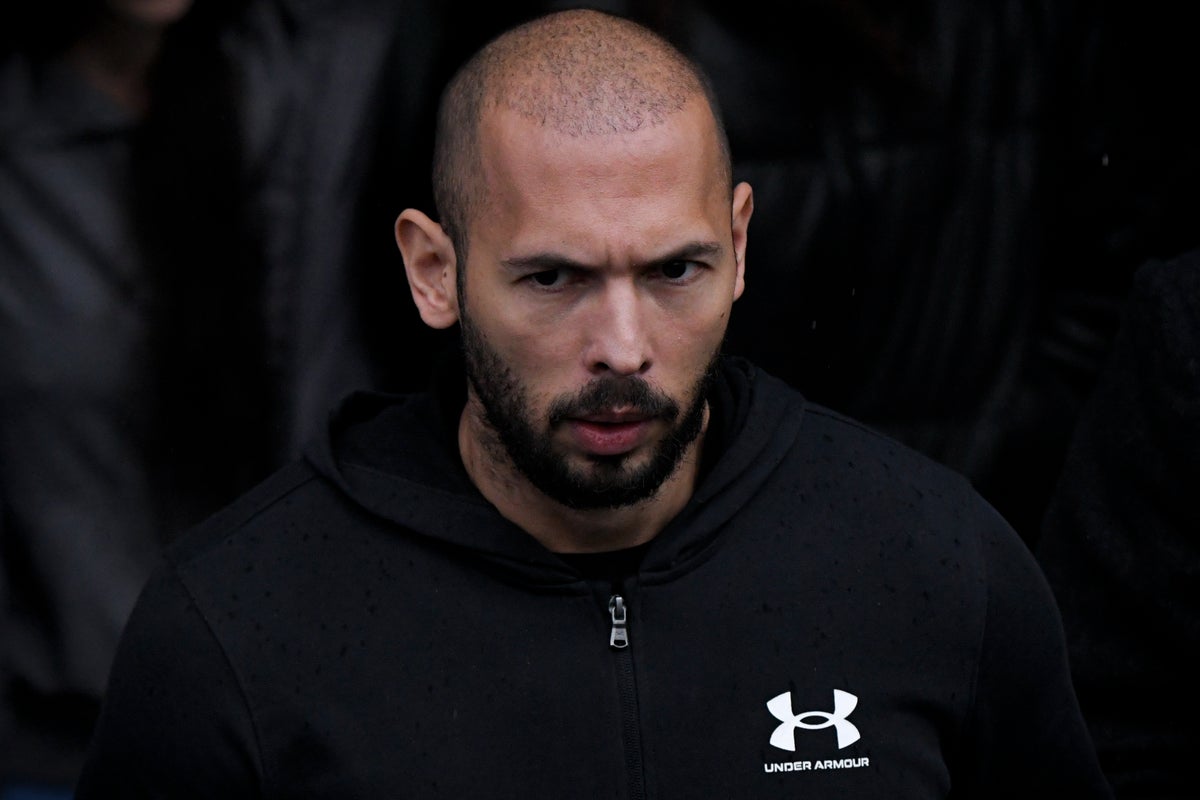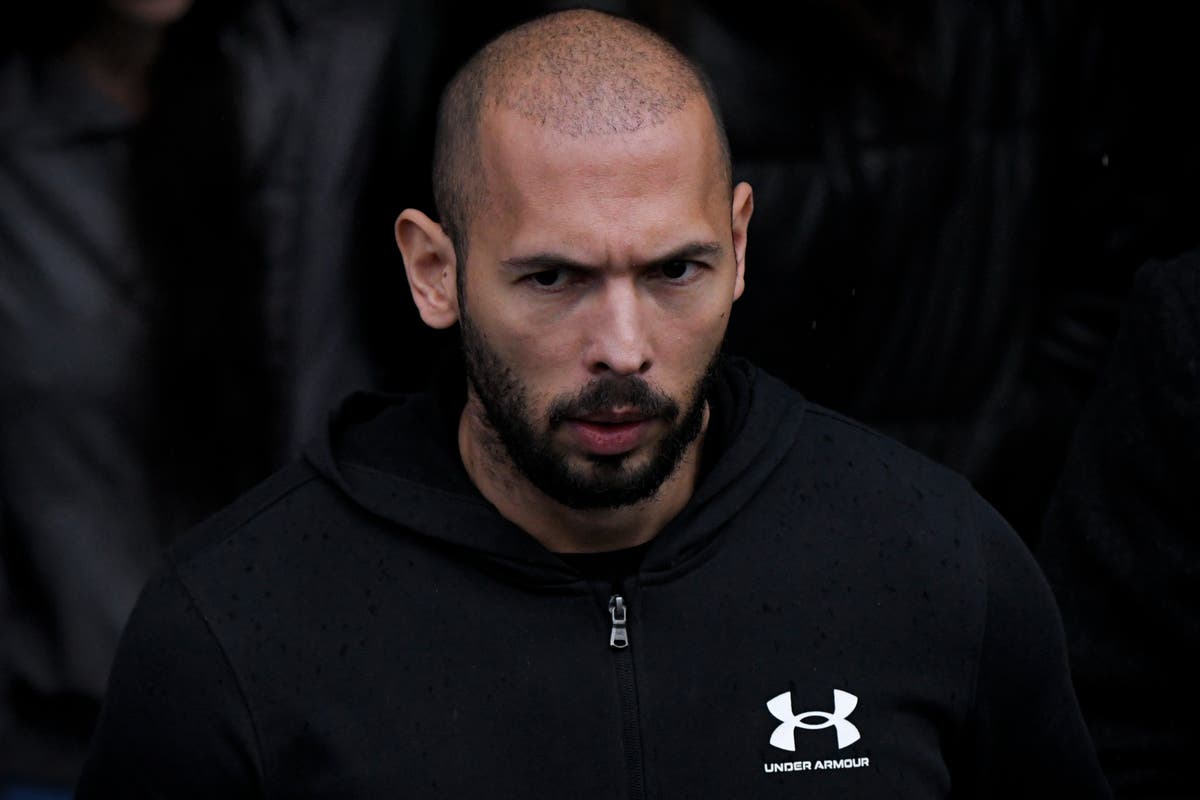
If you’re still unfamiliar with Andrew Tate, you’re one of the lucky ones. Wherever it is you’re sheltering, I hope it is warm, comfortable and you have enough tinned food for the foreseeable.
Tate sells himself as a hyper-masculine, ultra-wealthy, red-pilled lothario, who is willing to teach his young Padawans the ways of the world, women, and of the secrets of his own success. He offers young men the inside track on life. A ticket to the dream they didn’t quite know they had. In short, he is selling them a blueprint of how to be a man. And with a dearth of alternatives, they are more than willing to buy it.
There is something fundamentally underdeveloped about Tate. I don’t mean physically, but emotionally, intellectually, culturally. He radiates so much insecurity – masked with aggression and arrogance – that personally, I feel I need to squint when I watch him. Perhaps that’s why he always wears sunglasses.
But watch him people do. Mainly young men. Enthralled by the wisdom that their 36-year old guru from Luton is dishing out. Quick spoiler on the blueprint: “how to be a man” turns out to involve quite a bit of dehumanising of women, violence, sexual assault allegations, denial of depression, ownership of a machete, that kind of thing. Lest we forget, Tate was also arrested in Bucharest on 29 December for rape, human trafficking and organised crime charges.
He’s been banned from TikTok and Twitter (before he came back under Musk’s diktat, arguably giving him an even bigger boost) and is currently in prison – but Tate’s influence abounds. Why? What’s the appeal? If Tate’s views are so objectionable, and he’s such an obvious charlatan to the rest of us, why isn’t he coming across that way to so many young men? Why are thousands of them taking him seriously?
At its core it is fairly simple: it’s because he is speaking to them and we aren’t.
Teenage boys are small animals who love to be edgy, offensive and provocative. It’s no surprise that their attentions would be drawn to Tate. But they are watching Tate’s content at the same time they are forming their own identities. Add to that the confusing world of puberty, sex and transition to adulthood, all wrapped up in a body that’s changing every time they look in the mirror, and you have a person who is both vulnerable and perfectly primed for messaging.
The thing is, they want messages. Young people want to understand the world around them, how it works, and what their place in it might be, but we leave it to toxic characters on the internet to fill in the blanks. Two of the largest influencers in the past five years have been Jordan Peterson and Tate, and both became powerful in exactly the same way: offering themselves as self-help gurus to an unaddressed demographic, who are looking for answers.
Tate and Peterson present narratives of why young men feel the way they do, they give them a lens through which to view the world, and (literally, in Peterson’s books) rules to live by.
These gurus’ prescriptions are filled with all kinds of sinister techniques that appeal to insecurities – scapegoating, resentment, in-group, out-group thinking – but the reason why it thrives is because these narratives also have an element of aspiration and self-betterment to them. Young men want to be better, they want to live a meaningful life, but how can they get their bearings when it’s only the grifters selling the maps?
It is no accident that this is the same audience far-right groups and ultranationalists target and recruit from. They, too, engage young men with a lot of the same feelings, fears and grievances. They, too, offer narratives of how the world works and why things are a certain way.
Tate is not the cause of this. Rather, he is symptomatic of a problem. The problem is a lot of young men are in crisis and there is no obvious support for them.
So what do we do? How do we help those who have bought the snake oil that “Cobra Tate” is selling?
As a former teenage boy/small animal who, on reflection, could have gone in numerous different directions in life – not all of them good – I have a few ideas of what might work. I suppose we can’t expect Marcus Rashford to do everything.
For starters, on an interpersonal level, understanding their point of view is crucial. Tate has made it his business (literally) to address the concerns of alienated young men, and we need to do the same. Our silence is his oxygen. The more you can learn about the content teenagers are watching, the better. Ask them how they feel about it, and what it is they’re connecting with in Tate’s videos.
Our language surrounding this needs to be supportive and open-ended. If you tell a teenage boy not to watch something, he’ll take out a subscription. How we frame masculinity is equally important: there are young men who think the only time they hear “masculinity” is when it has the word “toxic” in front of it.
But I think what would really help is building from the foundation. We need to empower all young people in this country with critical thinking skills. That way they at least have a hope of parsing the tide of information that washes through their phone screens every single day. Forget teaching maths all the way up until 18, Rishi Sunak – if you actually care about the future of young people, then make philosophy a core part of the UK curriculum.
Hear me out: philosophy is a subject woefully overlooked in this country, yet it specifically engages people with topics such as personal identity, social roles, morality, ethics, rhetoric, literature – as well as many other areas of keen interest to curious minds.
Philosophy doesn’t give you the answers, but it does help you address the questions in a clearer way. It gives you the ability to think for yourself, instead of simply doing what a guy who used to get hit in the head for a living is telling you to do. It provides a place for conversations to happen, fosters reasoning and analytical abilities and allows space for people to ask questions and discuss these topics at length. These are practical tools we are not taught anywhere else.
Why are we relegating such important discussions to the playground or online forums that have been shown to radicalise? We’re all familiar with the “three Rs” in this country: reading, writing and arithmetic, considered the essential skills taught in schools. It’s time we added a fourth R: reasoning.
We need to teach young people how to think, before the next self-appointed YouTube or TikTok guru comes along and tells them what to think.
Clint Edwards is a stand-up comedian and writer
#young #men #listening #Andrew #Tate
